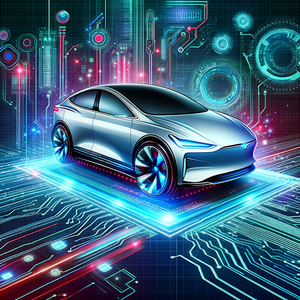In a battle between GM and Ford, reports the website Mishtalk.com last week, $7,500 per EV car tax credit could be at stake. This all rides upon the Biden Administration's definition of a “foreign entity of concern.” The article states that the exclusion aims to reduce US reliance on Chinese batteries and materials to make them.
According to Mishtalk, Ford CEO Jim Farley passionately presented the company's vision for a groundbreaking $3.5 billion battery factory to members of Congress. His argument? Embracing Chinese battery technology at the Michigan plant would be a strategic move to bridge the gap with China's expertise earlier this year.
Ford, aiming to produce cost-effective, iron-based batteries in Michigan using licensed Chinese technology, has been advocating for a more flexible interpretation of the "foreign entity" rule.
Later that same day, General Motors CEO Mary Barra and her team had a different perspective to share with lawmakers. They raised concerns that Ford's plans could potentially pave the way for Chinese dominance in U.S. car manufacturing, the article reports.
Both companies had valid points and it sparked a heated debate on the future of electric vehicles in America.
However, despite their differences, Ford and GM both share a common goal - to stay competitive in the rapidly expanding market for electric cars. With countries around the world committing to phasing out gas-powered vehicles, automakers like Ford and GM are under immense pressure to adapt or risk being left behind.
As a result, both companies have made significant investments in electric vehicle technology. Ford has announced plans to invest $30 billion into EVs by 2025, while GM has pledged $35 billion for the same time frame. These massive investments are a clear indication of the direction the industry is moving towards.
But it's not just about manufacturing electric vehicles, it's also about the infrastructure to support them. Ford and GM are investing in charging networks and building partnerships with companies like Amazon and EVgo to expand their reach.
Moreover, as technology advances, Ford and GM are also exploring new opportunities for growth in the electric vehicle space. This includes developing self-driving cars and integrating renewable energy sources into their vehicles.
Still, battery technology and the resources needed to make car batteries are beginning to look like a sore point their planned batteries don't qualify for car-buyer subsidies, which amount to $7,500 in tax credits for a potential buyer, Ford executives have hinted at the possibility of scaling back their investment. In fact, on Monday, the company even paused the construction of its new battery plant.
“This is not about GM vs. Ford,” a GM spokeswoman said, quoting the article. She said GM wants clarity and for the rules to follow the intent of the Inflation Reduction Act, which created the new tax credit requirements.
The battle for the future of American car manufacturing is heating up, and the stakes couldn't be higher. Stay tuned to see how this dynamic saga unfolds.
Maverick Recommends
- Web Article - An Epic Battle: Ford to Use China’s Battery Technology, GM Wants it Blocked
- Mobile Gnosis Organizational Profile - Ford Motor Co.
- Mobile Gnosis Articles Index - Battery Tech
About Maverick
Maverick is the call sign of the Mobile Gnosis publisher and editor-in-chief Matt De Reno.


